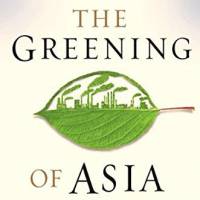With our planet teetering on a climate crisis, environmentalists have recently started making the case for going green from the perspective that it's good for business.
Enter Mark L. Clifford's "The Greening of Asia," which suggests thinking economically is the clearest way for the region to tackle its environmental problems, particularly China, which has grown incredibly over the past decade, becoming one of the environment's biggest threats.
Rather than critiquing the current state of affairs in Asia, the book is a blow-by-blow account of what has and hasn't worked. In three parts, Clifford highlights the problems unique to Asian countries. He begins by looking at the boom and bust of a solar panel company in China, then explores the potential for "green buildings" and ends with case studies from Indonesia and Singapore.
Clifford, for the most part, fails to mention that the types of governments that exist in countries such as China and Singapore are authoritarian, allowing rapid change in environmental policy. But this minor oversight, doesn't weaken his central point: sustainable infrastructure, which establishes green industries and reduces red tape, does more than reduce pollution — it makes money.
"The Greening of Asia" is an easy read and is littered with the kind of humorous and horrifying anecdotes about life in Asia that you'll be likely to share at the dinner table.
Clifford argues that environmentalism is one of the region's most pressing problems and he provides a swift guide to what works, absconding from the more standard approaches to the climate crisis.



















With your current subscription plan you can comment on stories. However, before writing your first comment, please create a display name in the Profile section of your subscriber account page.